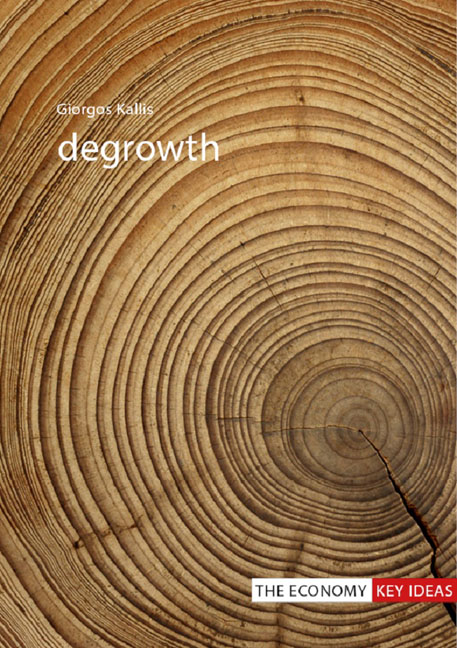5 - The utopia of degrowth
Published online by Cambridge University Press: 09 August 2023
Summary
Degrowth is not only a hypothesis, or trajectory. Those who use the term signify something bigger, a vision or imaginary of an alternative world (Latouche 2009; D’Alisa et al. 2014a). Degrowth is an opening of the imagination to futures other than a “one-way future consisting only of growth” (Le Guin 1982).
This vision is utopian since there is not yet a place where it has taken its full form. Seeds of it have existed, though, and do exist in collectives that organize their lives differently. And there are concrete ideas about how the vision can expand and become real. Degrowth can therefore be thought of as a new imaginary: a new set of ideas and fantasies that will institute and effect change of the material world.
This chapter outlines key elements of the degrowth vision. It then presents policies and grassroots actions that concretize this vision, before discussing the politics of its realization. The socio-political difficulties of a voluntary degrowth transition are recognized. This does not weaken the veracity of the diagnosis of chapter 4. Growth will not become more sustainable or less catastrophic just because degrowth is politically difficult.
A degrowth vision
After a chapter full of data and graphs, indulge me here while I imagine an economy after degrowth. There is a point both in thinking pragmatically within the contours of the immediately possible and in thinking idealistically in order to open up horizons and possibilities.
Using the word economy here is misleading because the degrowth imaginary decentres the economic and re-embeds it within the social and the political. Human activity and work in a degrowth imaginary are centred around care for other humans, sentient beings and their (our) habitats, and they serve the “unproductive” expenditures through which we make meaning (D’Alisa et al. 2014b,c). This constitutes a re-institution (and re-imagination) of the economy, re-embedding it within society.
Think of the ancient Greeks or Egyptians. For them, the economy was not a separate sphere. Production served politics, religious ceremonies and art; it did not dictate what happens in all spheres of life.
- Type
- Chapter
- Information
- Degrowth , pp. 117 - 148Publisher: Agenda PublishingPrint publication year: 2018

